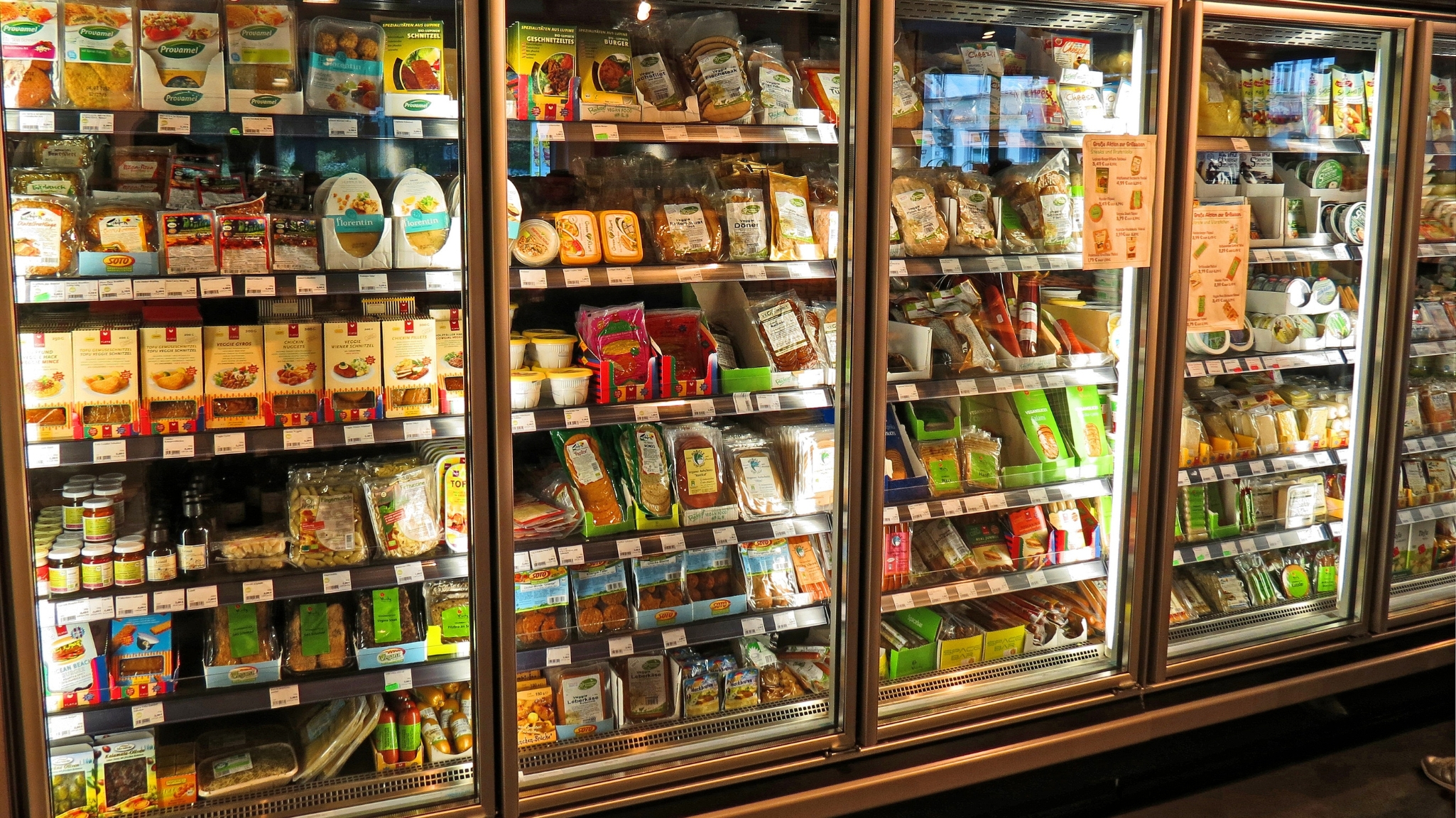Grocery aisles are lined with racks of processed foods. And though nothing can beat the crunch of a potato chip, yet you have to consider the negative effects that processed foods can have on your health. From potential dangers like heart disease to weight gain, loading your diet with processed foods may outweigh your pleasure or convenience leading to health concerns.
An Overview Of Processed Food
Processed food comprises any food that’s modified during preparation to render it more shelf-stable, flavourful, or convenient. A few foods are quite more processed than others. Pre-cut green beans or a bagged salad are technically counted as processed, though it’s just minimally processed as its original state hasn’t altered. To put it differently, it appears quite similar to as you’d discover it in nature. A microwavable dinner or a box of cheese and macaroni, on the contrary, are regarded heavily processed (also termed ultra processed) as they’ve been chemically modified with additives, artificial flavours and different ingredients.
Most foods consumed by us have been processed in some manner before reaching our plates. Nonetheless, the worry about processed foods doesn’t concern items like canned tuna or canned tomatoes, which are processed to lock in nutrients and freshness. The worry is about more highly processed foods like jarred pasta sauces, buns, and cake mixes. Plenty of these foods are eaten by us – it’s found that over half the calories in the average American meal is from ultra processed foods.
Processed Foods That You Often Buy
Processed foods constitute the convenience products that throng the mid aisles of your usual grocery store:
- Canned goods
- Ready-made meals
- Cookies
- Soda
- Chips
- Candy and different packaged products
- Sausages
- Bacon
- Lunch meat
- Hot dogs
- Cheese spreads or slices
- French fries and ice creams
These kinds of foods comprise most of the calories eaten on a frequent basis for the average American household. Staying away from processed foods entirely may be impossible, though knowing why eating excessive might be detrimental is a vital step towards enhancing your health. For beginners, these products usually carry elevated amounts of sugar, fat, or salt – all of which impair health when taken in excess.
Heavily processed foods are also usually chemically treated with preservatives or additives to enhance their texture, taste, or to prolong shelf-life. A simple way to recognize any processed food is to view the label; if it includes a laundry list of ingredients having unidentifiable, complex names it can be safely assumed to be processed food.
Excessive intake of processed food could be impacting your health in the following ways:
Leads To Obesity

It is well recognized that sugar causes obesity, which can consequently trigger a host of different chronic diseases. Heavily processed foods are frequently packed with added sugar but don’t get stumped if the term “sugar” doesn’t actually show on the label. There are almost 50 separate terms used to define kinds of sugar included in processed foods. The most popular names are fructose, corn syrup, glucose, malt or maltose, sucrose, honey, nectar, or molasses.
Recognized as “empty calories,” every kind of sugar, including those disguised or hidden varieties contain nil nutritional value other than carbohydrates and calories and actually, may urge your body to intake still more calories.
Intake of sugar activates a sense of cravings and pleasure inside the brain similar to that connected with drug addiction. This reveals why it is so difficult to resist craving for more after indulging in a sweet treat.
So, how much sugar intake is excessive? The 2020-2025 Dietary Norms for Americans suggests added sugars should be restricted to not more than 10% of daily calories. This corresponds to roughly 12 teaspoons of sugar daily, which seems quite generous until you take into perspective that an average soft drink can includes nearly ten teaspoons alone.
Processed foods have been associated with weight gain and overeating as they can be dense in calories.
People observing a highly processed diet tend to consume nearly 500 more calories than subjects observing a minimally processed regimen, as stated in a 2019 study in the journal Cell Metabolism. Consequently, people sticking to the heavily processed meal plans acquired greater weight on average and also ate quicker.
Eating too fast can make it hard to recognize satiety cues, leading to overeating in a few cases, as per Harvard Health Publishing.
Causes Metabolic Syndrome
Consumption of processed food is also associated with metabolic syndrome, a term associated with an assortment of risk factors that can cause type 2 diabetes and heart disease. Metabolic syndrome gets diagnosed when any 3 or more of the below 5 risk factors exist:
- Raised waistline with abdominal obesity
- Reduced HDL (wholesome) cholesterol levels, or requiring medication on account of low HDL levels
- Raised triglycerides, or requiring medication to lessen triglycerides
- High fasting blood glucose or requiring medication on account of raised fasting blood glucose
- High blood pressure, or requiring medication to lower high blood pressure
When refined carbohydrates are taken in huge quantities, the sugars are accumulated in the body – usually as fat – and may result in different metabolic consequences. An instance of these kinds of metabolic occurrences is regular rise in blood glucose levels needing insulin to stabilize. With time, this can cause insulin resistance, along with raising the blood triglycerides levels. The cumulative impact of these metabolic disruptions can increase the risk of developing diabetes and heart disease.
Can Cause Inflammatory Bowel Disease
Processed foods can even play a part in the advancement of inflammatory bowel disease, also termed ulcerative colitis or Crohn’s disease. The culprit this time is a kind of chemical additive termed emulsifiers, which are employed to prolong shelf life and maintain the texture or shape of foods. They are present in almost all processed food product, including peanut butter, breads, cake mixes, sauces, salad dressings, yogurt , processed cheese, pudding, desserts, and ice cream.
It might be astonishing to know that the emulsifiers employed in processed food resemble those also present in your household soaps or detergents. This is since the main function of an emulsifier is to permit water and oil to remain mixed, whether it’s for the aim of eliminating stains and grime, or for joining food substances that usually would separate.
In a current study, mice that were given a diet simulating typically eaten emulsifiers present in processed foods showed alterations in their gut bacteria that triggered different health conditions like metabolic syndrome and obesity – along with inflammatory bowel disease. The reason for this association is that the bacteria affected makes the mucus protective lining vulnerable that generally separates microbes from the intestinal wall. This creates an inflammatory response and results in the rise of these diseases.
Autoimmune Diseases

Autoimmune diseases are activated when the immune system of the body goes awry and attacks its own cells. There are more than 100 separate autoimmune diseases, though the more popular ones comprise type 1 diabetes, multiple sclerosis, lupus, Hashimoto’s thydroiditis, Crohn’s disease, and rheumatoid arthritis. In these ailments, the immune system tricks healthy cells as unhealthy and induces an invasion on the body it is intended to protect.
It is assessed that 70 percent of your immune system is situated in your gut. This is not astonishing when you regard the entire environmental toxins that move through your digestive tract from beginning to end. Your intestinal tract is layered with a unique layer of cells termed epithelial cells, whose work is to act as a protective membrane. The intestinal epithelial cells are connected together by tight junctions, that bonds them together and fortify the defence barrier against toxins, bacteria, and other dangerous antigens. But when these tight junctions get compromised, they degrade the body’s defence and expose it to injurious antigens that increase intestinal permeability. This is referred to as “leaky gut” and is currently a trending topic in medical research.
Research has displayed that 7 popular additives present in abundance in processed foods can harm the tight junctions, rendering them weaker and raising intestinal permeability. This, conversely, invites the toxins to injure the body, which raises the possibility of acquiring an autoimmune disease. The 7 additives recognized are salt, glucose, emulsifiers, gluten, organic solvents, nanoparticles, and microbial transglutaminase – all of which are popularly employed in processed food products.
Can Cause Colorectal Cancer
Processed foods can also raise the chance of contracting colon cancer. The causative factor is processed meats, which comprise lunch meat, sausage, bacon, beef jerky, hot dogs or any other meat product that has been chemically worked for preservation. The danger also comprises consumption of red meat like pork or beef.
Consuming as little as 50 grams of processed or red meat every day, which is nearly the equivalent of a small hot dog or 2 bacon slices, has been discovered to increase the chance of colorectal cancer by 18%. It is held that the danger arises from either the chemicals employed to preserve these meats or the cooking procedure through which they are preserved, both of which are connected with exposure to carcinogenic compounds.
A January 2018 study of nearly 1, 05, 000 participants posted in the British Medical Journal (BMJ) discovered that consuming processed foods regularly was linked to greater cancer and breast cancer risk. Nevertheless, the participant’s food consumption was self-reported, which can frequently be unreliable. The study authors concluded that further research is required to know the connection between a diet rich in processed foods and risk of cancer.
Can Cause Stroke

A July 2015 paper published in Stroke indicates that there is a connection between processed foods – particularly processed meats – and an elevated danger of stroke. A diet rich in processed foods is one that is frequently also abundant in sodium, which has been associated with a greater risk of stroke.
And when you’re loading on processed foods, there is little space for vegetables and fresh fruits, which are abundant in potassium. This combination could lead to disaster, as sodium and potassium regulate blood pressure. Sodium can raise your blood pressure whereas potassium can reduce it.
Besides, processed foods may also be abundant in Trans fats – like partially hydrogenated oils – which could lead to high cholesterol, stroke risk, heart attack, and cardiovascular disease.
Depression And Anxiety
If you’re not scrutinising your processed food consumption yet, there is another health danger to consider. Diets rich in processed foods are also connected with high levels of depression and anxiety. One hypothesis suggests that added sugars can cause havoc in your gut, where most of the serotonin production takes place.
Serotonin is a major mood stabilizer, and when a diet contains the chemical additives popular in processed foods, it can adversely impact the body’s capacity to keep healthy serotonin levels.
Additionally, the different sugar types can lead to a spike in blood glucose and elevated insulin production, which induces a metabolic process that can cause hyperactivity accompanied by lethargy. Further, all these types of sugars are highly addictive, and makes you body repeatedly crave for more.
Reduces Your Longevity
A February 2019 study posted in JAMA Internal Medicine observed more than 44,000 middle-aged persons in France and discovered that during a 7 year follow-up period, a rise in processed foods consumption was associated with a greater risk of death.
Further, a May 2019 study in BMJ discovered that munching beyond 4 servings of processed foods daily was linked to a 62% greater danger of death from non-age-based causes. The researchers carried it a step further and noted that for each extra serving of processed food, those possibilities rose by 18%.
Summing Up On The Health Hazards Of Processed Foods
On the whole, diets rich in processed foods generally denote a lack of healthy food, which makes the body suffer from mineral and vitamin deficiency that are necessary for your mental health as well as overall well-being. Though it is not possible to eradicate processed foods from our recipes completely, but it is always better to be aware of the amount you are consuming which can lead to a healthier lifestyle and save you from medical illnesses.

